Serbian church from the 14th century seized; "We call for an immediate reaction..."
The Diocese of Raška-Prizren announced that Pristina declared the Serbian church in the village of Gornje Vinarce Catholic.
Monday, 25.12.2023.
08:49

Serbian church from the 14th century seized; "We call for an immediate reaction..."
Ministry of Culture of the Temporary Pristina Institutions, in its campaign of appropriating the material and spiritual heritage of the Serbian Orthodox Church, started the alleged "renovation" of the Orthodox church in the village of Gornje Vinarce, seven kilometers from Mitrovica, on the north side of the Ibar River, it was announced on the Facebook page of the City of Mitrovica.The Diocese of Raška-Prizren announced that, apart from not contacting the Serbian Orthodox Church about the restoration of that building, the ministry in Priština went one step further and declared that church "Catholic", with the obvious intention of appropriating the heritage of the Serbian Orthodox Church.
Under the name "Catholic church in Gornje Vinarce", the church was included in the list of "monuments under the protection of the Ministry of Culture in Pristina" from 2016.
In a text on the Internet that refers to sources from that ministry, it is mentioned that the roof of stone slabs was repaired, the sidewalk was made and that the church was plastered inside, and photos show that a temporary door was put in, according to the Diocese. It should be noted that the so-called sign was placed in front of the church.
The Ministry of Culture of Kosovo, where the name "Catholic church in Vinarce" is mentioned again and they list two companies that are carrying out the works, which, it is claimed, are nearing completion. The Diocese of Raška-Prizren expresses the strongest protest against the process, which apparently represents the intention of the Kosovo authorities, to "restore" churches that were destroyed or damaged by Albanian extremists without any consultation with the Church to which these objects belong and to change their identity, despite the existing historical testimonies.
On the occasion of this latest incident, the Eparchy of Raška-Prizren will inform international representatives, organizations that deal with religious rights and the protection of cultural heritage, because Kosovo institutions do not respond to the lawsuits of the SOC and do not fulfill their legal obligations towards our Church even in the case of judgments of the highest courts, Diocese emphasizes in a statement. It is emphasized that this Diocese is not opposed to the restoration of its sanctuaries, many of which were destroyed by Albanian extremists in 1998-1999, still standing in ruins, but to strongly oppose the use of the alleged reconstruction in order to take over the Serbian cultural heritage and change the identity for the purpose of historical revisionism.
That is why the reconstruction of destroyed Serbian churches after the March pogrom was carried out under the supervision of the Council of Europe, which guaranteed the protection of the rights of the Serbian Orthodox Church.
If the first part of the strategy of Albanianization of this area was the expulsion of the Serbian population after the 1999 war, when about 200,000 Serbs and non-Albanians were forced to leave these areas, and the systematic destruction of Serbian Orthodox churches and cemeteries in order to erase all traces of our historical existence, now the goal of the Albanian institutions in Kosovo is to independently rebuild those churches that were demolished by changing their identity, the Eparchy points out.
It is emphasized that such behavior of the so-called of Kosovo's institutions, the main reason for the impossibility of normal cooperation of the SOC with institutions that openly work to deny our history, identity and heritage, all with the aim of creating an ethnically pure Albanian territory. The Diocese of Raška-Prizren invites international representatives to react to these incidents and take measures to stop future violence against the churches of the Serbian Orthodox Church.
"Changing the identity of churches directly causes ethnic and religious intolerance and is punishable under the laws of Kosovo, causes ethnic and religious tensions and makes it impossible to calm down the situation, which has worsened many times over, especially in recent years," the statement said.
The Diocese states that the Orthodox church in the village of Gornje Vinarce has existed since the 14th century, in a village that was then purely Serbian, with 15 Serbian homes, which was also recorded in the Turkish census immediately after the Ottoman conquest of Kosovo and Metohija in the area of Isa-bey Ishaković, in 1455.
In a document issued by the Oriental Institute from Sarajevo in 1964, which also conducted other Turkish censuses that show the composition of the population at that time, the vineyards in this village are mentioned, which apparently gave it its name. From its building structure, it is clear that the church in Vinarce is similar to the cemetery churches from the 14th and 15th century, of which there are more in a wider area, with an altar apse and a niche for proscomidia characteristic of the Orthodox tradition.
There is no mention of the presence of the Roman Catholic community in the village, and as far as the Eparchy of Raška-Prizren is known, the Roman Catholic diocese has never used this church, nor is there any written information or material evidence about it.
Until 1999, the church was used by Orthodox believers who gathered here on the first Friday after Easter, because the church was dedicated to the "Life-giving East", which is further evidenced by a source nearby. After the expulsion of the Serbian population, the church in Gornje Vinarce was desecrated, set on fire, written with graffiti, and the entrance door was broken.
Unfortunately, this is the state of many of our churches during the 1998-1999 war, damaged or destroyed by Albanian extremists. This is another testimony of a church that the local Albanian population considered Serbian, because otherwise it would not have been desecrated and burned, which is also the case with many other churches and monasteries that were attacked and are now being proclaimed in the media or through the Ministry in Pristina for "Albanian churches", emphasizes the Eparchy of Raška-Prizren.
According to earlier data from the Diocese of Raška-Prizren, during the communist period, the church was attacked in an earlier period and was devastated in 1972 when a mob of local Albanians broke the doors, windows and demolished the interior of the church trying to set it on fire.











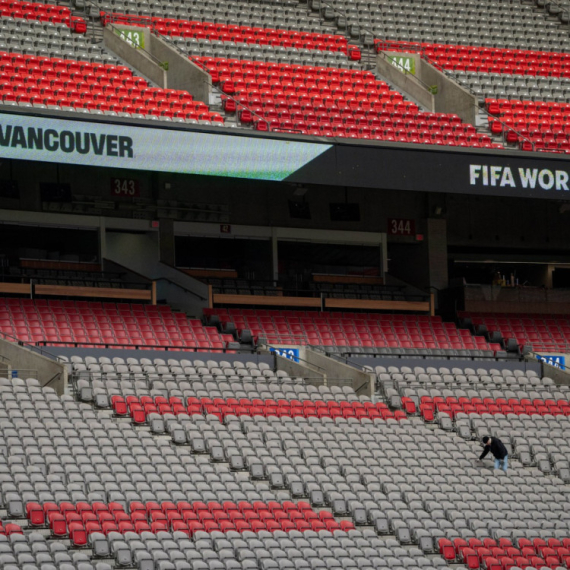
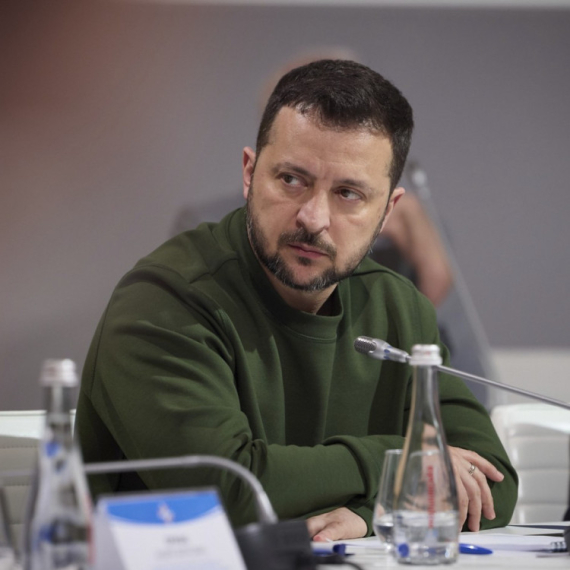


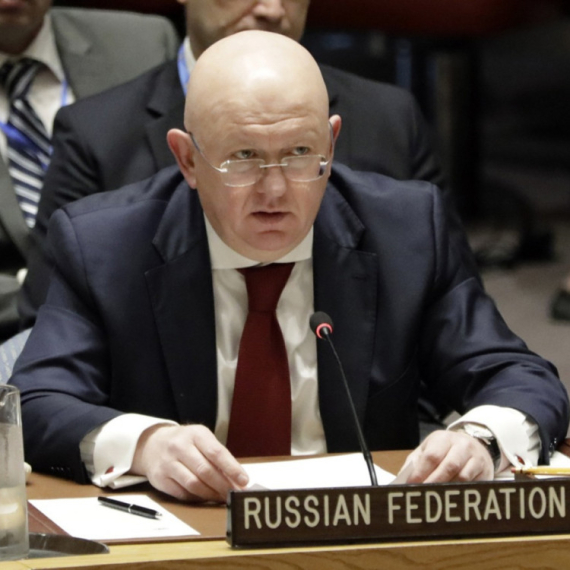





























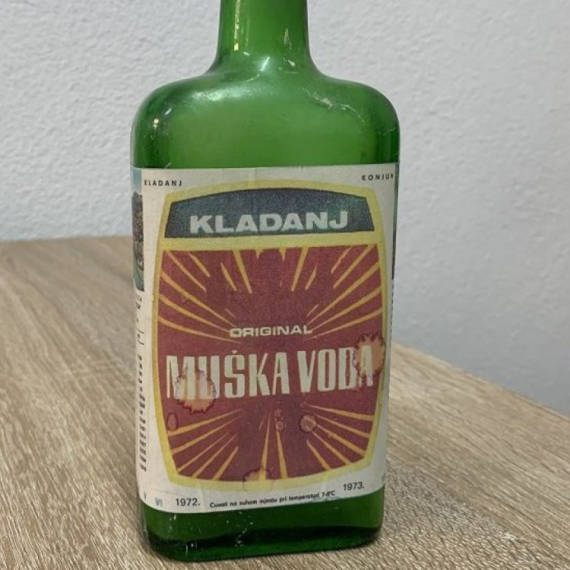
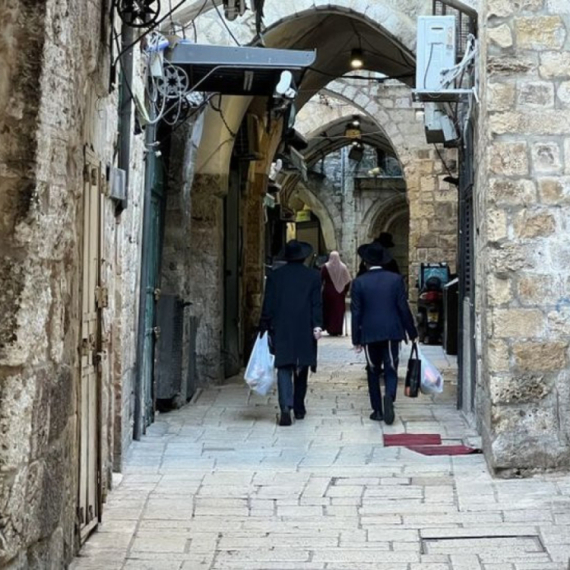

Komentari 6
Pogledaj komentare